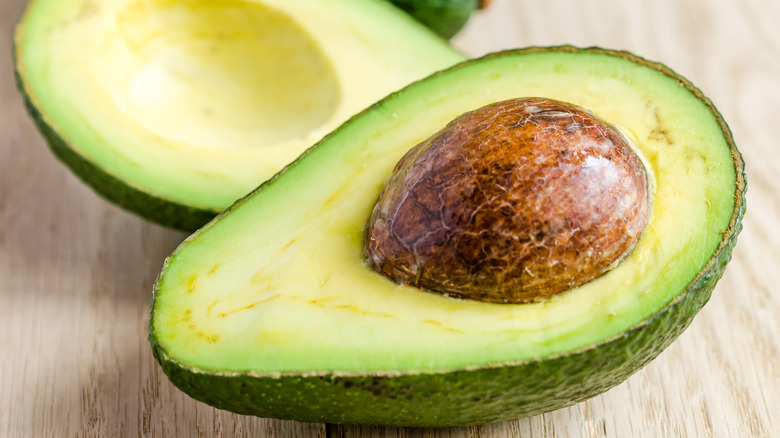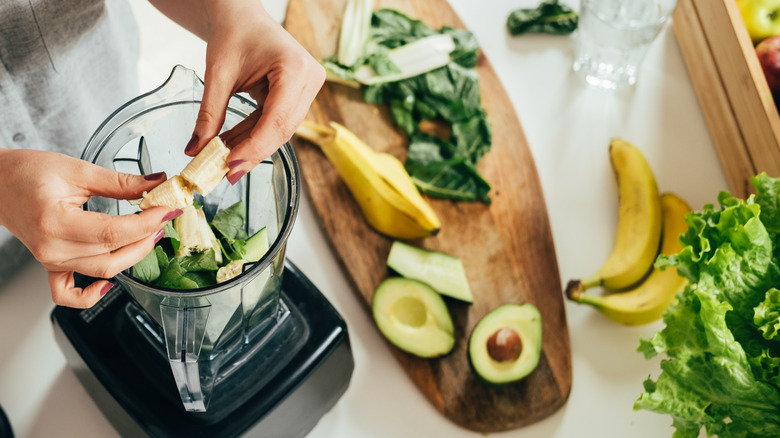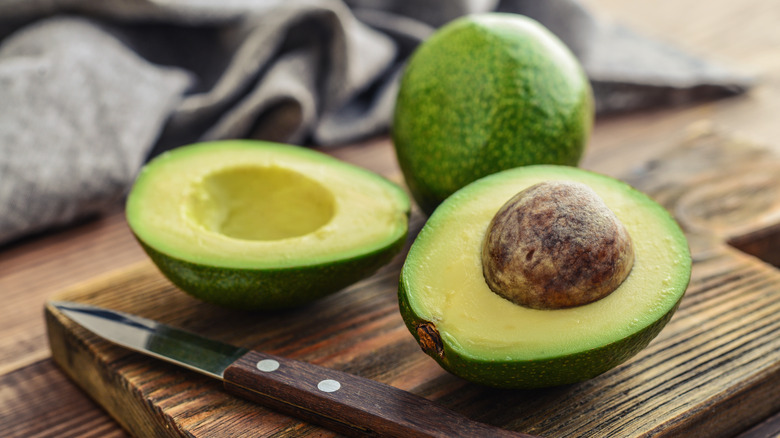The Safety Concerns To Know Before Eating Avocado Seeds
The large brown pit that sits inside that creamy green fruit we all love may seem impossible to eat, but it's become a trend in recent years to consume them. Cue the questions: who even knew avocado seeds were edible? Why would you eat one? And just because you can, does that mean you should?
There are endless creative avocado recipes out there, but people are going a step further and finding ways to eat avocado seed in addition to its delicious pulp. Some people dry the seed out and then blend it or chop it into a more edible, powder-like form; others blitz it into their smoothies with a powerful blender or use the seed to brew a nutritious tea.
It turns out that the avocado seed is a powerhouse of nutrition, but there's also some concern and controversy over whether the pits are safe to consume — even the California Avocado Commission recommends against it. If you're wondering whether you should try adding this to your diet, let's dig into the pros and cons.
Pros of eating avocado seeds
There's no doubt that avocado seeds are rich in nutritional value. They contain a substantial amount of fiber, fatty acids, and antioxidants — all essential to the body's many functions — and because of this nutritional makeup, avocado pits come with a slew of potential health benefits.
The seeds have been found to help lower cholesterol and blood pressure and as a result, decrease the overall risk of heart disease. Studies have also found that the seeds are actually able to fight certain bacteria and fungi (like candida) by inhibiting their growth, acting as a sort of antidote to bacteria or yeast that can be harmful to the body.
And the extract of avocado seeds is particularly powerful — it has been found to contain potent anti-inflammatory properties, which can help remove harmful toxins from the body and treat or improve digestive issues. And some studies have even found evidence that its compounds can help destroy specific types of cancer cells.
Cons of eating avocado seeds
While the potential health benefits of avocado seeds certainly make a good case for throwing this nutrition bomb into your next smoothie, the problem is that most research has focused on the properties of avocado seed extract — not on the entire seed itself and whether it's safe to physically eat.
The California Avocado Commission's official stance is that "the seed of an avocado contains elements that are not intended for human consumption." Some concerns revolve around the plant compounds found in the seeds, which may be unsafe for humans, and others around the fact that its oils have been shown to increase fat buildup and enzymes in the liver.
Most testing has only been done on animals, and avocado seeds simply haven't been researched enough to confidently determine whether they're safe for the human body. So it's up to your discretion whether the potential benefits are worth the risks.



